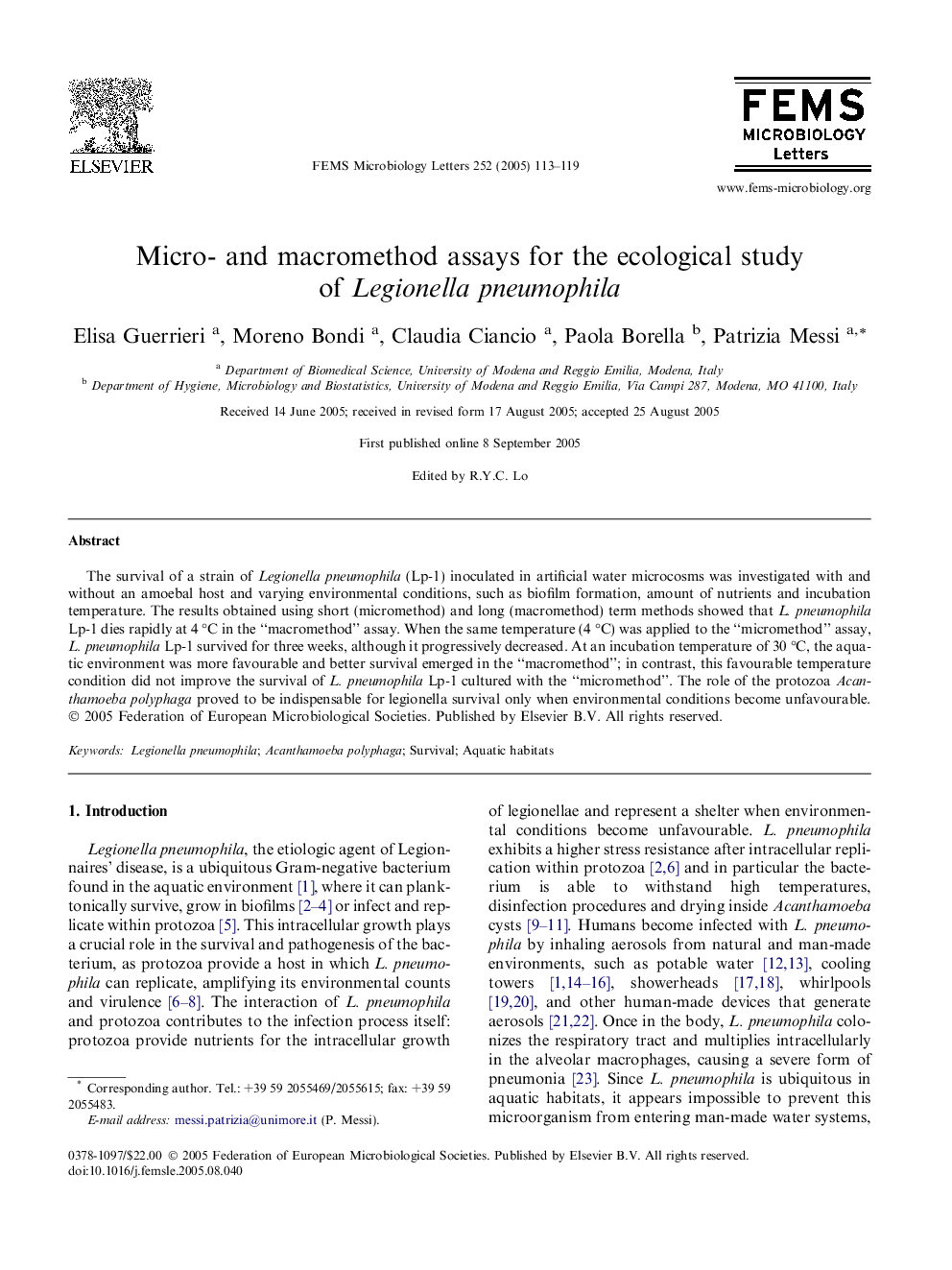| Article ID | Journal | Published Year | Pages | File Type |
|---|---|---|---|---|
| 9121327 | FEMS Microbiology Letters | 2005 | 7 Pages |
Abstract
The survival of a strain of Legionella pneumophila (Lp-1) inoculated in artificial water microcosms was investigated with and without an amoebal host and varying environmental conditions, such as biofilm formation, amount of nutrients and incubation temperature. The results obtained using short (micromethod) and long (macromethod) term methods showed that L. pneumophila Lp-1 dies rapidly at 4 °C in the “macromethod” assay. When the same temperature (4 °C) was applied to the “micromethod” assay, L. pneumophila Lp-1 survived for three weeks, although it progressively decreased. At an incubation temperature of 30 °C, the aquatic environment was more favourable and better survival emerged in the “macromethod”; in contrast, this favourable temperature condition did not improve the survival of L. pneumophila Lp-1 cultured with the “micromethod”. The role of the protozoa Acanthamoeba polyphaga proved to be indispensable for legionella survival only when environmental conditions become unfavourable.
Related Topics
Life Sciences
Biochemistry, Genetics and Molecular Biology
Genetics
Authors
Elisa Guerrieri, Moreno Bondi, Claudia Ciancio, Paola Borella, Patrizia Messi,
